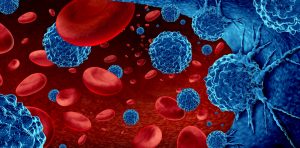
Roche’s breast, lung cancer offerings fail to impress at ASCO
pharmafile | June 4, 2018 | News story | Research and Development, Sales and Marketing | ASCO, Cancer, Roche, breast cancer, lung cancer, pharma, taselisib, tecentriq
Roche made an underwhelming impact at the American Society of Clinical Oncology (ASCO) annual event in Chicago, after revealing data which demonstrated only mediocre efficacy for two of its therapies for breast and lung cancer.
Tecentriq (atezolizumab), the firm’s most prominent immunotherapy, was shown to improve progression-free survival by 29% when combined with chemotherapy (carboplatin and Celgene’s Abraxane) as a first-line treatment for advanced squamous non-small cell lung cancer (NSCLC), and median PFS by just three weeks compared to chemo alone. After 12 months, PFS rose to 25% compared to 12% with chemo alone. These improvements occurred regardless of PDL1 levels.
No overall survival benefit could be observed in the interim analysis of the data, and Roche’s Dr Sandra Horning, Roche’s Chief Medical Officer and Head of Global Product Development, confirmed the company’s intention to continue the ongoing study of the drug:
“The IMpower131 data further inform our understanding of this difficult-to-treat type of lung cancer and will continue to as we evaluate additional outcomes from this study. IMpower131 is one of eight Phase III trials from our extensive research programme evaluating Tecentriq alone or in combination with other medicines in different types of lung cancer.”
Roche’s drug has already secured approval for advanced NSCLC for specific patients with advanced bladder cancer, but the new data does nothing to help Tecentriq’s uphill struggle against rival immunotherapies Keytruda, manufactured by MSD, and Opdivo, manufactured by BMS.
The second therapy, taselisib in combination with AstraZeneca’s Faslodex (fulvestrant), also failed to show any real efficacy, improving PFS by just two months compared to Faslodex alone in oestrogen receptor (ER)–positive, PIK3CA-mutant locally advanced or metastatic breast cancer. Overall response rate stood at 28% compared to 11.9% for taselisib alone, while OS data was still immature.
On top of these disappointing findings, the combo produced a range of adverse events, with 60.1% of the 516 postmenopausal women taking part in the trial developing diarrhoea and 40.4% developing hyperglycaemia. In light of the findings, Roche revealed it would “not be pursuing an FDA submission for taselisib based on the data presented at ASCO.”
Matt Fellows
Related Content

Genentech’s Columbi meets primary endpoint in phase 3 trial for lymphoma treatment
Genentech, part of the Roche Group, has announced that its phase 3 STARGLO trial has …

FDA clears Oryzon’s phase 1/2 trial for lung cancer treatment
Oryzon Genomics has announced that the US Food and Drug Administration (FDA) has approved its …

Geneos Therapeutics shares data from phase 1/2 trial for cancer vaccine
Geneos Therapeutics has announced that it has published positive safety, immunogenicity and efficacy data from …








